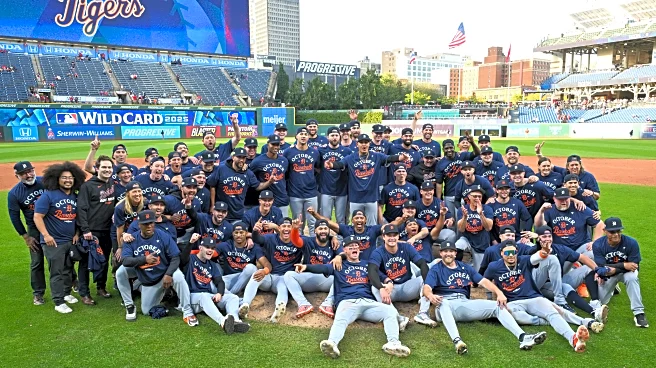What is the story about?
What's Happening?
Coffee chains like Costa are experiencing difficulties as consumer preferences shift, particularly among younger generations who are increasingly favoring matcha and other non-caffeinated beverages. Costa, owned by Coca-Cola, is reportedly considering selling the chain due to underperformance. The rise of smaller, independent coffee shops and the popularity of matcha, which is perceived as a healthier alternative to traditional coffee, are contributing to this trend. Blank Street Coffee, a chain that started in Brooklyn, has capitalized on this shift by offering a variety of matcha drinks and expanding its presence in major cities like New York, Washington, and Boston. The chain's appeal is partly driven by its presence on social media platforms like TikTok, where it has gained a following for its unique offerings and aesthetic appeal.
Why It's Important?
The shift in consumer preferences towards matcha and other non-caffeinated beverages highlights a broader trend in the beverage industry, where health-conscious choices are becoming more prevalent. This change poses a challenge for established coffee chains like Costa, which must adapt to remain competitive. The potential sale of Costa by Coca-Cola underscores the financial pressures these chains face amid rising costs and changing consumer tastes. The success of smaller chains like Blank Street Coffee suggests that there is a growing market for niche, health-oriented beverage options, which could lead to further innovation and diversification in the industry.
What's Next?
As Costa explores its options, including a potential sale, it will need to consider how to adapt its offerings to align with current consumer trends. This may involve introducing new products or rebranding to appeal to health-conscious consumers. Other major coffee chains may also need to reassess their strategies to compete with the growing popularity of matcha and similar beverages. The industry could see increased competition as more independent and niche coffee shops emerge, offering unique and health-focused options.
Beyond the Headlines
The rise of matcha and similar beverages reflects a cultural shift towards wellness and sustainability, which could have long-term implications for the beverage industry. As consumers become more aware of the health impacts of their choices, companies may need to prioritize transparency and sustainability in their sourcing and production practices. This trend could also influence other sectors, such as food and hospitality, as businesses seek to cater to a more health-conscious clientele.


















